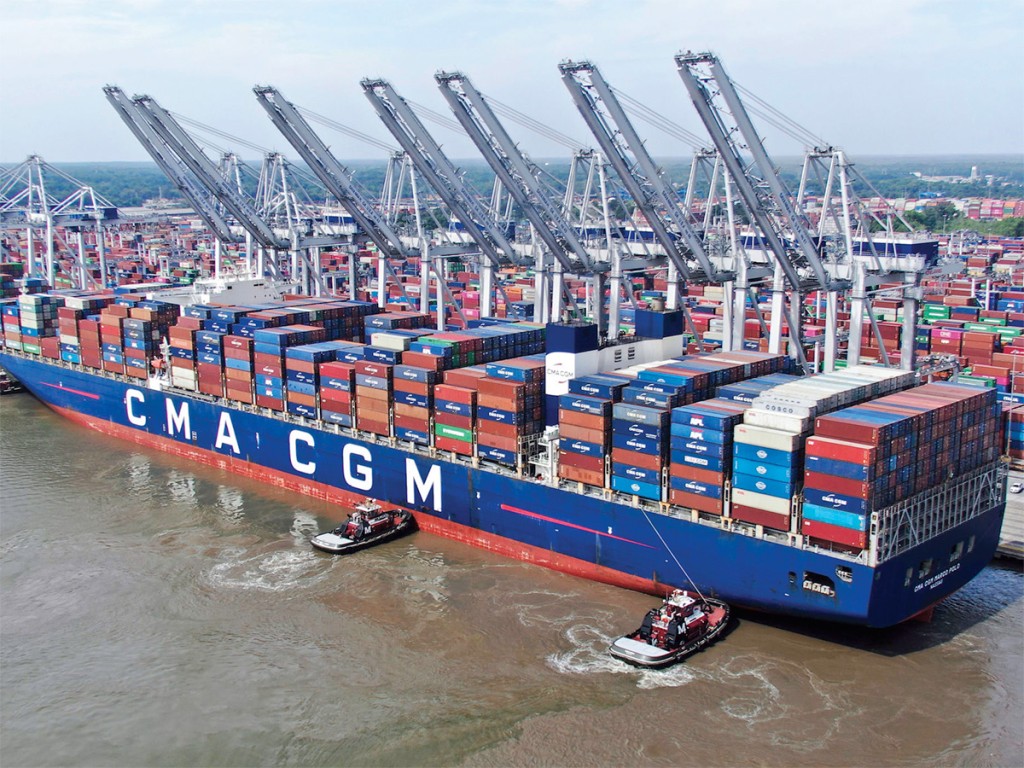Georgia’s Center for Innovation is a big ally for logistics companies operating in the State of Georgia.

Georgia logistics operators, and those considering a move to the Peach State, have an ally at the Center of Innovation, a division of the state’s Department of Economic Development, where logistics is one of six industry verticals the center focuses on.
The team keeps abreast of developments in Georgia’s robust technology community, much of which is devoted to driving supply-chain and logistics innovations. It also hosts the annual Georgia Logistics Summit, which took place this year on March 8, and which brings the industry together for education and networking.
“We know that just bringing people together creates synergies and sparks innovation,” said Lake.
The center also produces monthly industry information, in the form of the Logistics Market Snapshot, which compiles data that impacts local logistics and supply chain operations.
The team has been instrumental in efforts to alleviate the truck driver shortage, a national as well as regional problem, by supporting driver training programs across the state at 35 technical colleges. “Each one of them offers commercial driving certification,” noted Lake, “with classroom and behind-the-wheel training.”
The Georgia Ports Authority (GPA) has invested in technology in recent years, including systems that provide advanced notification of cargo arrivals. “We help companies outside the gates learn how they can operate better by connecting to the port’s system,” said Lake, “and be better informed on how cargo is flowing.”
The port is now conducting a pilot project for trucks to have signal priority for getting in and out of the facility. “That’s another way to keep cargo moving and it also helps with local traffic as well,” said Lake.
Georgia is committed to developing innovative infrastructure that helps keep cargo flowing, Lake noted. “We will be the only state in the next few years to have truck-only lanes for a 42-mile stretch between Macon and just south of Atlanta,” she said. “This was an effort that had to be orchestrated,” among various state and local agencies, as well as private interests, “in order to be effective.”
Autonomous Truck Operations
The center is also involved with setting the stage for autonomous truck operations in Georgia. “There are several companies looking at Georgia because we have autonomous-friendly legislation,” said Lake. “There’s a company that is now doing an autonomous run into Georgia and they want to expand. We are working to help them be able to connect to other companies involved in autonomous-vehicle innovations. Part of the challenge is getting the public acceptance.”
That aspect aside, autonomous vehicles help cargo move because they “can continue to run throughout the night or day and not be hindered by hours-of-service issues,” said Lake. “It’s almost like operating a surface train.”
Public acceptance is also an issue when it comes to the robust growth in industrial real-estate construction and operation in the Georgia ports districts and beyond. That involves, among other things, “smart land use planning,” which “coordinates with residential areas in order to keep congestion down,” said Lake. “The Georgia Department of Transportation is working feverishly to improve the road access in and out of the port so that it takes some of the pressures off local traffic.”
Other similar measures include trying to decrease interruptions by rail so that locals aren’t aggravated by having to wait for long freight trains to pass. “It’s a delicate balance of trying to keep freight as efficient as possible and keeping the neighbors happy and feeling good about the growth in their areas,” said Lake. “We try to help with innovative, outside-the-box thinking that isn’t handled by other groups.”
Supply Chain Visibility
Lake’s team is also working to boost logistics innovation in Georgia by supporting the emblematic innovations in today’s information technology arena—artificial intelligence machine learning. “We’re involved in various aspects throughout the educational system and in the private sector,” said Lake. “The desired end state is total visibility within the supply chain.”
One company Lake’s team is working with is Kale Solutions, which provides an air cargo community system that promotes better communications and scheduling of trucks in and out of the air cargo facilities at Hartsfield- Jackson International Airport in Atlanta. “The system improves data sharing within the air cargo supply chain,” said Lake. “If you are able to adjust timings by as little as 15 minutes here or there you can reduce emissions, fuel costs, and driver delays, all of which can add up to significant bottom-line improvements.
“Wherever we have opportunity, we help move toward greater connectivity by exposing these initiatives at the Georgia Logistics Summit and elsewhere,” she added. “We get conversations and keep conversations going on supply-chain and logistics innovations and efficiencies, and that helps logistics in Georgia and the state’s economy overall.”




